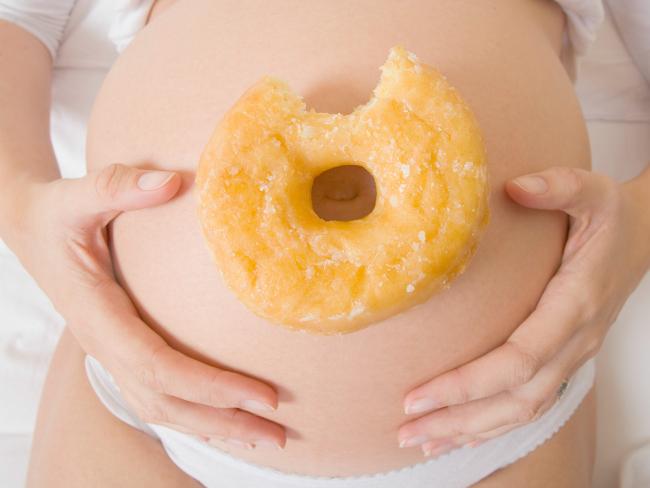Women are told a great deal of nutritional information when it comes to pregnancy and breastfeeding.
We’re given huge lists of healthy foods and drinks to eat and others to avoid in order to maintain optimal health for mum and bub.
But when it comes to childbirth, there’s less food advice. In fact, typically pregnant women are discouraged from eating at all during labour.
Women are told to eat things that are easy-to-digest like ice blocks, ice chips and juices. These help to maintain hydration and energy levels without putting labouring mums at risk.
There have been long-held concern that eating substantial meals during childbirth would put a labouring mum at risk of vomit entering her lungs if an emergency c-section and anaesthetic were required.
“The acid nature of the stomach liquid and the presence of food particles were particularly dangerous, and potentially could lead to severe lung disease or death,” a 2013 Cochrane Review into Eating and Drinking in labour explained.
The Royal Australian and New Zealand College of Obstetricians and Gynaecologists (RANZCOG) also follows this guideline and suggests that women should only consume clear liquids during labour.
The emphasis is on making sure women remain hydrated, rather than maintaing their energy intake.
“Consideration should be given to fluid loading, particularly where the patient may be relatively dehydrated after some hours in labour,” the RANCOG website states.
“Women should be encouraged to only have clear fluids and light diet in the active phase of labour to minimise the small risk of aspiration pneumonitis [inhaling the stomach contents].”
However, new research by the American Society of Anaesthesiologists suggests otherwise, with evidence showing that women eating light meals during childbirth could help their labours progress.
The study found that, “Women in labour need the same kind of energy and calories as a marathon runner.”
“When they don’t get it their bodies turn to fat for energy which can reduce contractions and lead to longer labour and lower health scores in newborns.”
This finding means that withholding good nutrition for mums during labour can potentially lead to longer labours and foetal distress.
The research also found that there were no deaths from aspiration in the U.K. between 2000 and 2005, compared to 1.5 cases per 1,000 women in labour in the 1940s when concerns about eating during labour were originally raised. The researchers attributed this to the advances in anaesthetic care over the decades.
So, ladies, next time you’re in the labour ward and have a hankering for a mars bar or a vegemite sandwich to get you through the next umpteen hours of contractions, keep this study in mind. Or, at least have it in your hospital bag to wave in your obstetrician’s face if words fail you!


